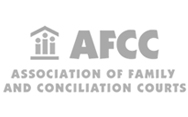Blog
The Aftermath of Chicago Divorce
If you are contemplating a divorce or are in the beginning stages of a pending divorce, you are likely looking forward to the end of the process but you may not have contemplated the actual logistics of the eventual separation. While it is obvious that you and your spouse will divide your assets and debts and go your separate ways (practically speaking, the extent to which will depend on whether you have children), we find that our clients are often surprised at the work to be done upon entry of the divorce judgment.
It’s a sigh of relief once the litigation, mediation, or collaborative process is finalized, and often times parties understandably want to begin their new life as soon as the ink has dried. However, while your Chicago divorce decree will contain provisions for how your assets and debts will be divided, it will be up to you and your spouse, with the potential guidance and involvement of your attorneys, to actually effectuate the division. Depending on the type of asset, and the nature of the division, this may be a simple and easy task, or it may take a significant amount of time and effort. But by considering the work to be done down the road, you can make your life a lot easier and expedite your transition to post-divorce life in Chicago when the time comes.
Bank Accounts and Credit Cards
The most simple, straightforward division is usually that of a bank account. A joint account will either be closed, or the parties will have to cooperate to remove one person’s name from the account. Note that this may actually require appearing in person, depending on your bank and the type of account. You’ll also want to be certain that all joint accounts are addressed – during the course of the marriage, parties often accumulate several joint checking and/or savings accounts, and accounts with lower balances or accounts that are infrequently used are often overlooked, only to cause a headache months after the divorce once they are discovered.
Similarly, joint credit cards are often opened and closed during the course of the marriage, and it is important to be certain that any active joint credit cards are addressed – your judgment will provide which spouse is responsible for paying any remaining debt on such cards, and subsequently those cards should be closed or the non-retaining spouse’s name should be removed. Spouses also commonly add each other as authorized users on certain of each other’s credit cards although the card may be more or less exclusively used by the primary holder, which should be addressed following a divorce as well.
Retirement Accounts/Pensions
Another commonly divided asset in Chicago divorces is a retirement account or pension. During the course of the marriage, parties may have contributed toward a number of these accounts, including 401(k) accounts, 403(b) accounts, Individual Retirement Accounts, and/or pension plans. The division of these types of assets is far less straightforward than the division of a basic bank account.
Most often, in order to effectuate the division of these accounts, a special court order must be entered. For qualified retirement plans (including 401(k) and 403(b) accounts), these court orders are known as Qualified Domestic Relations Orders. Although penalties typically result from the withdrawal of these funds prior to the owner reaching retirement age, when they are divided incident to divorce, the entry of a QDRO dividing the account may allow some or all of the funds to be rolled over and/or withdrawn without incurring the typical penalties. A similar order may be entered to effectuate the division of a pension plan. Note that if a pension plan is not yet in pay status, the order can provide for its eventual division once it begins paying out. While the relevant court orders can often prevent early withdrawal penalties, tax implications of withdrawals of the funds will likely still apply and should be contemplated by the divorce decree entered in Chicago.
Depending on the nature of the account and complexity of the division of these accounts, an expert may be consulted during the drafting of these orders. The orders will also typically need to be reviewed and approved by the plan administrator before entry by the court to ensure that the order will be given its intended effect. Oftentimes, these orders are drafted following the divorce, and can delay the division and/or rollover of the accounts – it is therefore prudent to acknowledge when such orders are going to be required and begin their drafting during the pendency of the divorce to avoid any such delay.
Real Estate
There are many considerations to address when real estate is divided in a Chicago divorce, depending upon whether the house will be retained by one of the parties or sold.
If one party is going to keep the house, the title to the home and the mortgage should reflect this arrangement following entry of the judgment. If the parties co-owned the home and were jointly liable on the mortgage until the divorce, both of these arrangements must be modified – typically, via a quitclaim deed in favor of the retaining spouse and a refinance of the mortgage into his or her name, respectively. Both processes can involve various complications and often require timely cooperation by the parties to effectuate.
In contrast, if the home is going to be sold after the divorce, there will be many steps to be taken to accomplish the sale – everything from selecting a realtor, determining the listing price and the procedure for any adjustments thereto, the amount of an acceptable offer, and the actual logistics for dividing the proceeds. In order to streamline the process and avoid additional litigation, many of these decisions can and should be provided for in the divorce decree; however, despite the most thorough of divorce judgments, circumstances may unexpectedly arise during the process necessitating additional decisions as well.
Name Change
There are also some changes that are not related to assets or debts, but can require some effort on the part of one or both ex-spouses to effectuate. For example, some spouses wish to resume the use of their maiden name following a divorce. This is a personal consideration, potentially influenced by the length of the marriage and/or whether there are children of the marriage and their ages if so. In order to change your name on legal documents like your passport, driver’s license, etc., a court order is required. Accordingly, the Illinois Marriage and Dissolution of Marriage Act actually provides that all divorce judgments shall contain a provision granting a spouse the right to resume the use of his or her maiden name. The decree acts as the court order necessary to effectuate the change, which must be completed with the Social Security Administration.
Estate Plan
Finally, although your Chicago divorce decree will delineate the property you and your spouse are each entitled to, your estate plan has separate legal significance. If you executed an estate plan during your marriage, it is imperative that you take the time to consult with an estate planning attorney to determine what changes will be necessary once you are divorced. The most obvious reason for changing one’s estate plan is that it is extremely common for spouses to name each other as the primary beneficiary of their estate, and any children as secondary beneficiaries. For obvious reasons, most spouses would prefer to change these arrangements following divorce. Additionally, many spouses name the other as executors of their wills or trustees of their trusts; presumably, following the divorce, each party would prefer to modify this designation.
Consult with the Chicago divorce lawyers of WARD FAMILY LAW, LLC
Whether some or all of these assets or circumstances are part of your marital estate to be allocated at the end of your divorce, let the Chicago divorce lawyers at WARD FAMILY LAW, LLC assist to make sure this process is as efficient and easy as possible following the conclusion of your Chicago divorce.




Request
a Consultation

If you would like an attorney to contact you for a free consultation, please complete this form.
